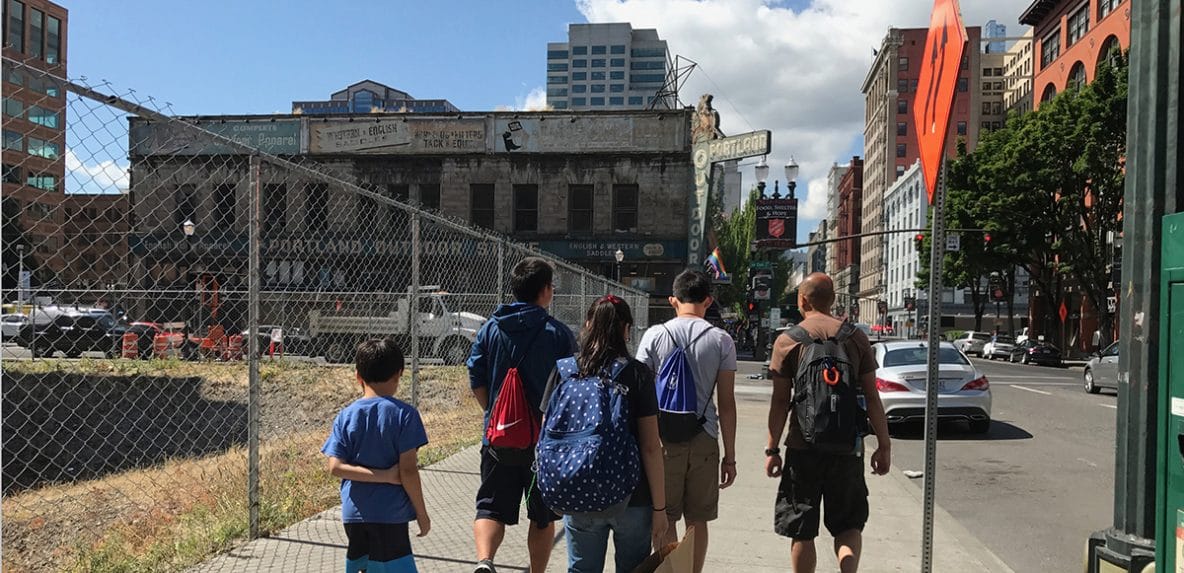By Lauren, Kaleo Portland Staff
Each week in Portland we take teams downtown to have lunch with the homeless. Before scouring the waterfront for some company, we emphasize to the teams that our mission is not just to feed, but to connect; to offer a listening ear, to share stories, to recognize the brokenness we’re all akin to in this world. However, this is not a lesson learned in one fell swoop. Fear consumes students — fear of strangers, of unpredictability, of speechlessness… and the butterflies won’t back down, no matter what we say. (I still get anxious too, for the record).
One particular day, I led a group of three high school students along the waterfront. One of them noticed a man sitting in a wheelchair with a puppy on his lap. The student beckoned the group to approach him, and so we headed his way. “Hello sir,” I greeted him, asking him how he was doing and if he would like a lunch. He accepted a PB&J made by yours truly, and I asked to pet his dog, whose name he told us was Chilly.
David was his name — it was a strong name, he told us, and he was thankful for it. We chatted about Portland, the weather, and then the current political situation. At one point, he took off his sunglasses and looked us in the eyes. “I’ve been around for a long time,” he told us. “I’ve seen a lot of things, experienced a lot of things. I’ve got scars. Can you imagine what that’s like?” Surprised by his vulnerability and frankness, I shook my head. “Well, you will. In time you will.”
After a momentary pause, I asked a question to turn the conversation around: “David, where do you find hope?”
Without hesitating, he raised his finger and pointed at me. “You,” he said. “ME?” I asked in surprise. “Yes, all of you,” he clarified, gesturing to the group. “You are my nation. You are the next generation.”
Of course, I was originally hoping his answer would be Jesus. But I recognized in that moment that what he said was true, and in itself pointed to God. The teams of middle and high school students coming to serve and love Portland this summer are hope. They proclaim hope by sacrificing a week of their summer to dine with strangers, to look them in their eyes and call them by name. They let love win by overcoming fear, stepping into awkward situations, seeing people with God’s eyes. His kingdom is coming through the bravery of these students, through compassion that’s unafraid of the norm, that sees the truth and seeks justice by loving action.
This is the next generation, and David was right: it’s hopeful.

